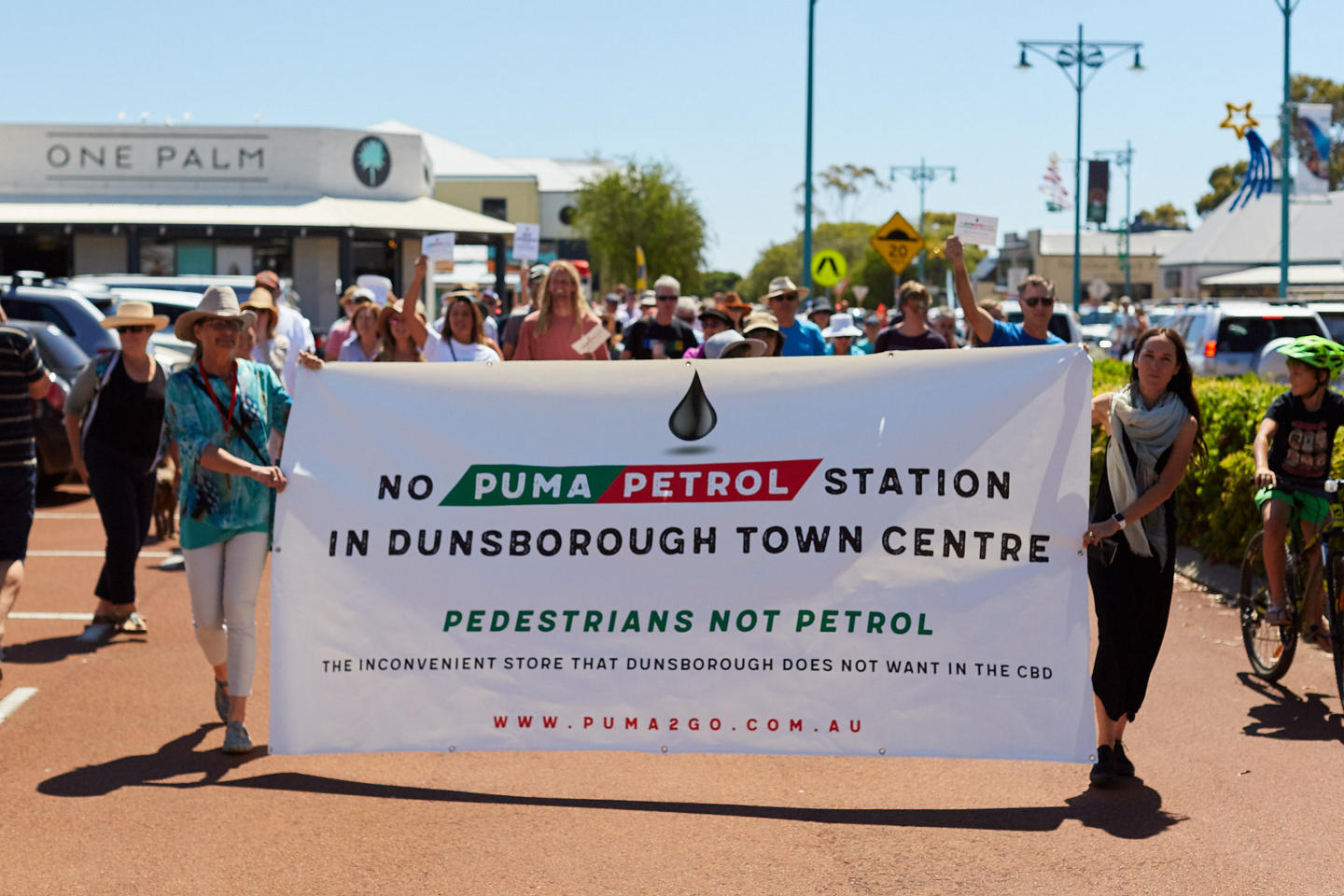The proponents of a Puma Energy development on Dunsborough’s main street had a win in the Supreme Court yesterday, but the issue is far from settled according to a local advocacy group against the proposal.


The proponents of a Puma Energy development on Dunsborough’s main street had a win in the Supreme Court yesterday, but the issue is far from settled, according to a local advocacy group against the proposal.
The plan to build a Puma Energy station on one of the last vacant development blocks on Dunn Bay Road in Dunsborough's town centre has been under dispute since the application was lodged with the Southern Joint Development Assessment Panel (SJDAP) three years ago.
Under the City of Busselton’s planning scheme in 2015, landowner DCSC Pty Ltd defined its development application as a convenience store, a shop that sold supermarket goods but also petrol.
Hotchkin Hanly Lawyers partner Michael Hotchkin, who has been representing DCSC, last year told Business News the planning scheme had defined a service station as a place that not only sold petrol, but also repaired cars.
Mr Hotchkin said that, as the Puma proposal did not repair cars and had a shop that sold supermarket goods, it was classified a convenience store, not a service station, under the City of Busselton's planning guidelines.
While a convenience store development was permitted at that location, a service station was a discretionary use that required a decision to allow it to go ahead.
Since 2015, the SJDAP has rejected the proposal twice on a discretionary basis, pointing to conditions that it didn’t sit within the City of Busselton’s planning strategies and that it would have a significant impact on the visual and pedestrian features of Dunn Bay Road.
On both occasions, landowner DCSC Pty Ltd has appealed those decisions to the State Administrative Tribunal, with the SAT ruling in favour of DCSC’s proposal on the same terms each time – that the development constituted a convenience store, a permitted use.
The second SAT hearing took place in February 2017 and delivered its decision in August, again in favour of the Puma development.
Before that SAT decision was delivered, however, the City of Busselton’s planning scheme was changed to define a service station as a place that sold petrol or repaired cars, with the definition of a convenience store remaining unchanged.
As a result, the SJDAP’s lawyers (State Solicitor’s Office) lodged an appeal in the Supreme Court against the SAT’s final decision to approve the Puma station based on this change of definition, arguing that the SAT had to apply the new classification use at the time it delivered its decision.
Mr Hotchkin told Business News the classification issue around the site's usage had already been decided as a preliminary issue by the SAT in August 2016, and that the Supreme Court‘s judgement yesterday ruled that governments cannot change the law to defeat an appeal once an appeal is lodged; it held that the law to be applied is not that which applied at the time the final decision was delivered, but at the time that appeal was lodged.
“The JDAP can appeal the decision to the Court of Appeal, but there are no prospects of success, in my view, so it would be surprising if they did,” Mr Hotchkin said.
“It means that Puma can proceed with the development as soon as it receives its building permit, which must be issued by the city.
“I believe they are keen to do that within the next few weeks.”
Opposition
Greg Milner, the spokesperson for Puma2go, the Dunsborough community’s grassroots campaign against the proposal, said while the Supreme Court’s decision was disappointing, it didn’t signal the end of its push to stop the development from progressing.
“It’s not over yet,” Mr Milner told Business News.
“The City of Busselton cannot take unreasonable steps to prevent this development going ahead, having said that they can and should take all legal steps to make sure that the development is done in the right way and in the right location.
“On Wednesday night the Busselton city council voted to seek legal advice on whether this development can be stopped from selling diesel on the basis that the original SAT decision was made that they could open a convenience store that happens to sell petrol but there was no mention of diesel fuel.
“If they can’t sell diesel the business case for putting it up in the middle of town goes out the window because down here half of all vehicles are diesel.”
Business News contacted the City of Busselton, which confirmed Mr Milner's statement regarding the council meeting.
Mr Milner said the group couldn’t direct JDAP to appeal but urged JDAP to take every legal measure possible to stop the development.
“We will continue to urge the developers and Puma to consider locations outside of the centre of town,” he said.
“We don’t have any objection to Puma per se, it’s that three petrol stations in the middle of town is just not the way to go.
“We’re trying to preserve the village atmosphere of Dunsborough.”
Mr Milner said surveys conducted by the group had overwhelmingly shown the population of Dunsborough and Yallingup were against the development, but would consider a station out in the light industrial area, along Commonage Road.
In addition, he said more than 2,000 people had signed a pledge to not use Puma if it went ahead.
If a building permit is issued, Puma will become the third petrol station in Dunsborough, directly across from the town’s Shell petrol station and just 100 or so metres away from the BP petrol station in the town centre.
















